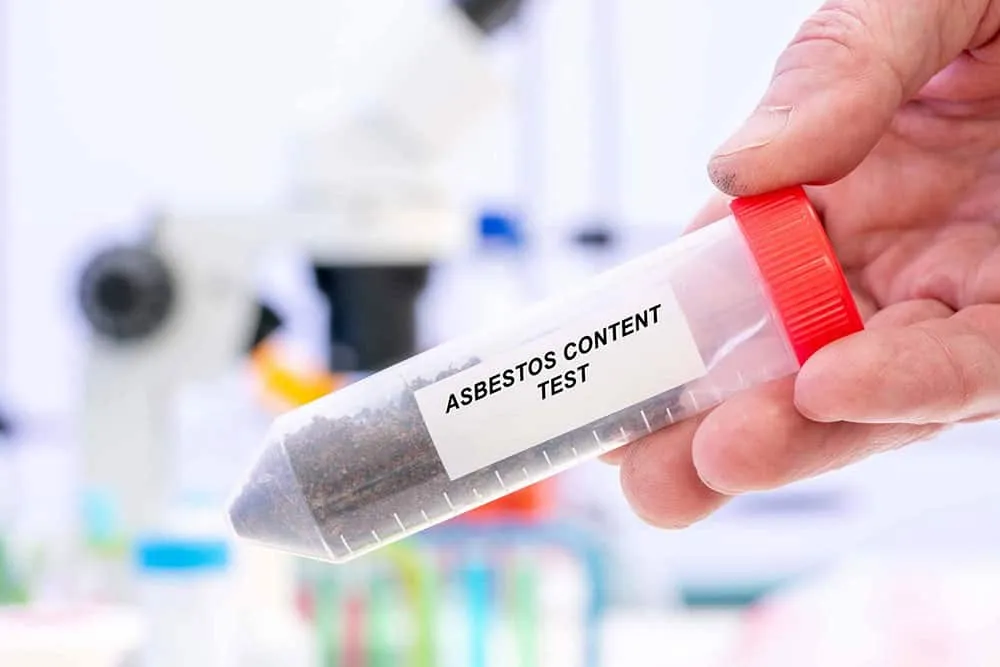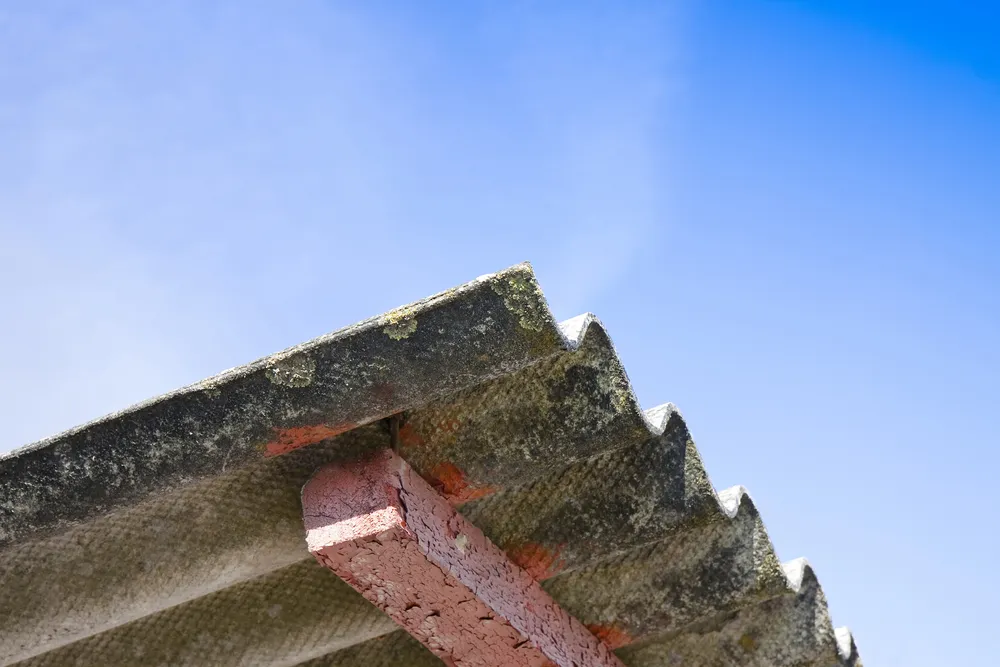Post-Asbestos Abatement Testing: How to Know You’re Free & Clear

Asbestos abatement is the process of safely removing or encapsulating asbestos, so you can enjoy your space free from health hazards. However, the journey doesn’t end after your asbestos abatement plan. You’ll still need to undergo a final round of post-abatement testing for reassurance that your air is clean and safe to breathe.
Below, learn all about the essential post abatement tests that verify your space is free and clear, and what to do if your space needs more help.
What is a Post-Abatement Clearance Test?
A “clearance air test” is a type of air quality test done after asbestos abatement. Passing the clearance test means your space is “clear” of harmful amounts of asbestos. In other words, it’s safe to live, work, or play in again.
Do I Have to Get A Clearance Test?
That depends on your specific scenario. If you’re a homeowner with a small DIY removal job, testing isn’t strictly required under RI asbestos regulations. Although it’s definitely important for full peace of mind that your space is safe to reenter.
For owners of commercial buildings, DIY abatement isn’t an option. Rhode Island law requires hiring a certified asbestos removal contractor to remove or encapsulate the asbestos. So, you’ll need to factor in final asbestos clearance testing as a part of the process.
Understanding Rhode Island’s Asbestos Rules
After abatement, the Environmental Protection Agency (EPA) recommends taking a minimum of ten samples from your property: Five inside and five outside. But that’s not a hard and fast requirement in most cases. Your inspector might take more or less.
Rhode Island also requires that the person who collects your samples be separate from your abatement contractor. Having no association with the abatement contractor ensures your results are free from conflicts of interest.
Where Can I find An Asbestos Inspector?
In Rhode Island, professionals qualified to gather samples can include industrial hygienists or asbestos inspectors. Here you can find a list of certified asbestos inspectors. Use the search bar to narrow down professionals by city or zip code.
How Asbestos Sample Testing Works
Licensed professionals usually collect air samples by using a pump that draws air through a cassette, trapping any airborne particles in the cassette’s filter.
From there, the samples go to a certified Asbestos Analytical Service, where a lab tech examines a slice of the filter under a microscope. To get a passing test, the sample must yield less than or equal to .01 fibers per cubic centimeter, which is considered a safe amount for humans.

How To Pass An Asbestos Clearance Test
If you went the DIY route with asbestos abatement, it’s crucial that you follow all the proper guidelines and safety protocols to keep the particles from spreading through the air. You can learn more about the proper procedures with the EPA’s guide to asbestos for homeowners.
- Use Air Purifiers: Run an air purifier while abating with a HEPA filter to trap any leftover particles.
- Use The Right Cleaning Methods: Don’t sweep or dust your space immediately after removing asbestos. Instead, use a vacuum with a HEPA-certified filter and use a wet cloth to remove any lingering dust.
What If My Post-Abatement Tests Are Still Positive For Asbestos?
If your test results show more than .01 fibers per cubic centimeter, unfortunately, you’ll have to undergo the abatement process again. A failed test means the air isn’t safe to breathe, so you’ll need to re-quarantine the affected area.
If this were a DIY job, consider working with a professional abatement contractor for your re-clean. Reputable, certified professionals understand all the proper procedures and have access to the best equipment, giving you peace of mind that your space will pass the test the first time around.
A Rhode Island Asbestos Abatement Company For Total Peace Of Mind
If you’re looking for a Rhode Island asbestos abatement company for residential and commercial buildings, PRIME Abatement is ready to help.
Our team of industry-certified pros can leap into action at a moment’s notice. You’ll receive the industry's best cleaning methods and equipment, ensuring your space is clean and safe with minimal downtime. Plus, we never pay referral fees, which provides you with the most competitive prices in the state.
Contact us today to tell us about your case or schedule a consultation.
Rhode Island Post-Abatement Testing FAQ
Do you need an air test after asbestos removal?
While not always legally required, an air test is always a good idea to ensure your space is safe and asbestos-free.
Who tests for asbestos after abatement?
A licensed industrial hygienist or certified asbestos inspector, who has no association with your asbestos abatement company, should collect the air samples. The lab that tests the samples should also be certified by as an Asbestos Analytical Service.
These precautions ensure that your test results are accurate and unbiased.
What counts as a passing asbestos clearance test?
Your test should come back from the asbestos lab with fewer than .01 fibers per cubic centimenter.
How much does asbestos testing cost post-abatement?
According to data from the Asbestos Institute, bulk sample testing typically costs between $300 to $600 on average, but the exact amount may vary, depending on the scale of your job and the cost-of-living in your area.

